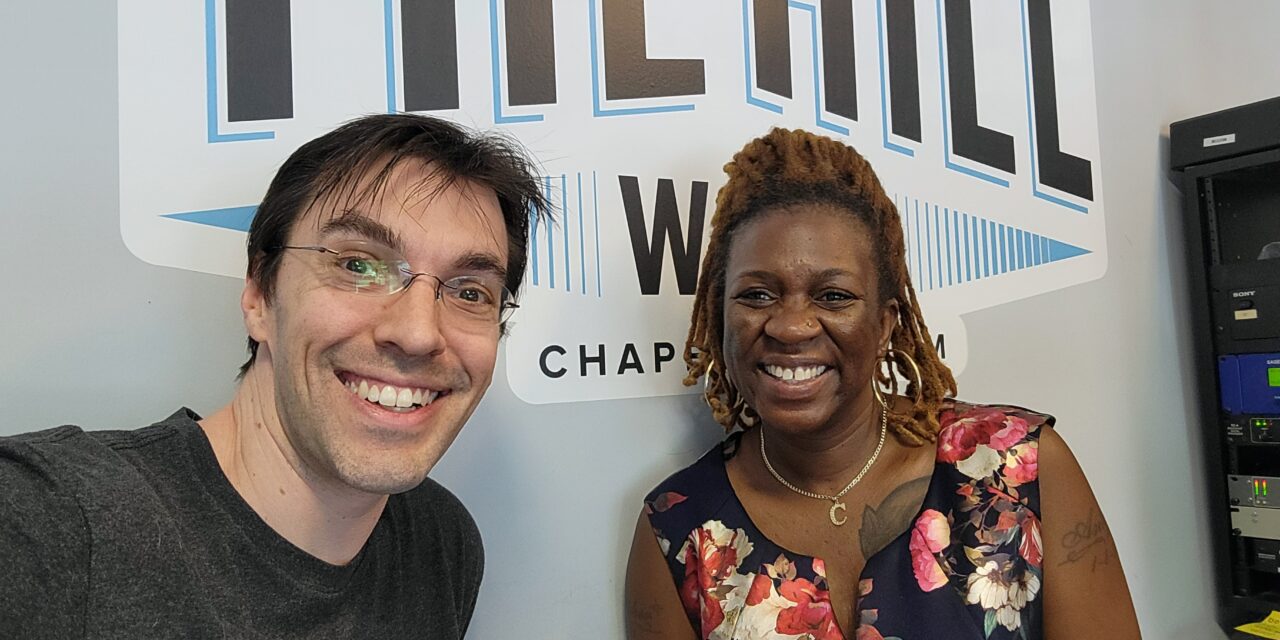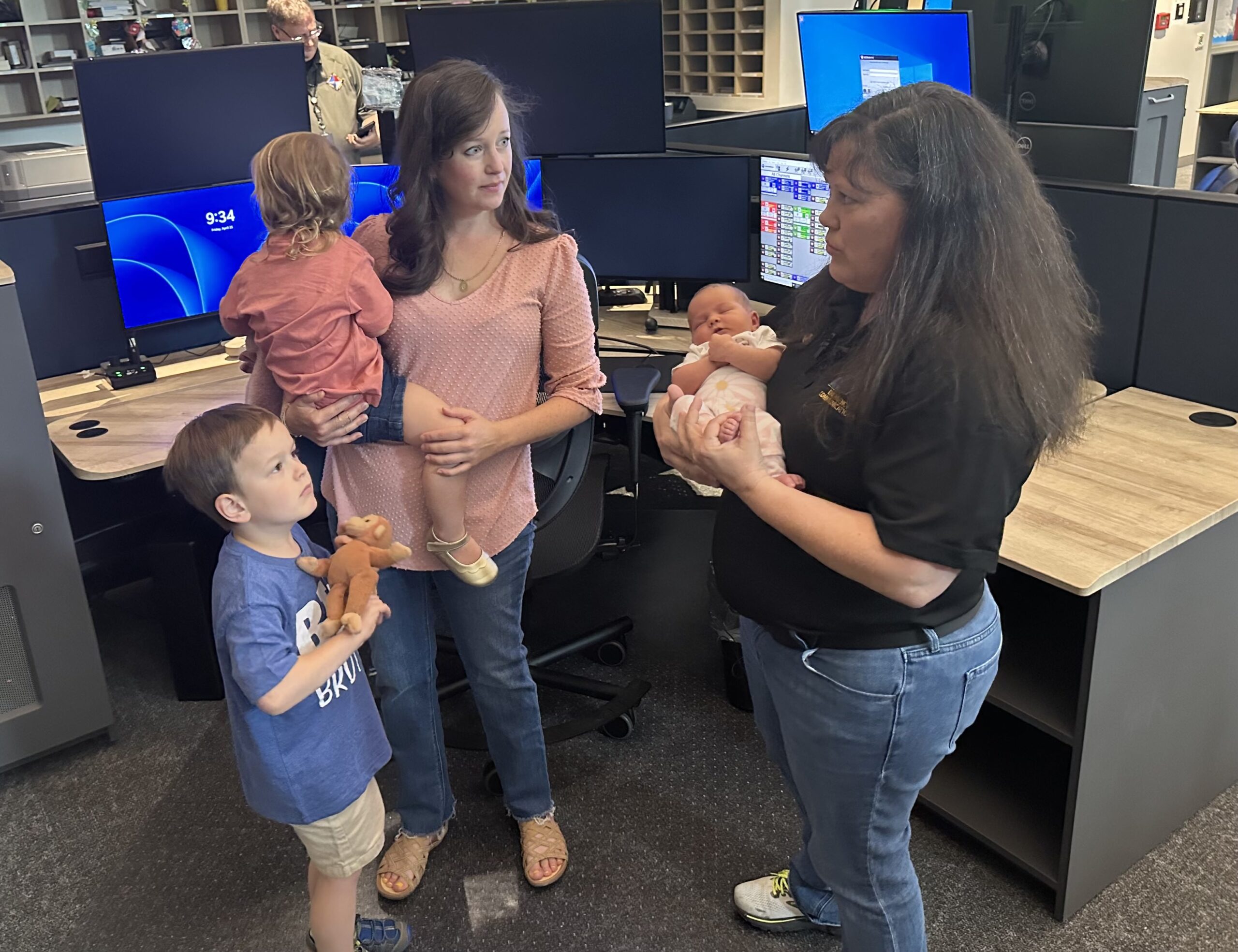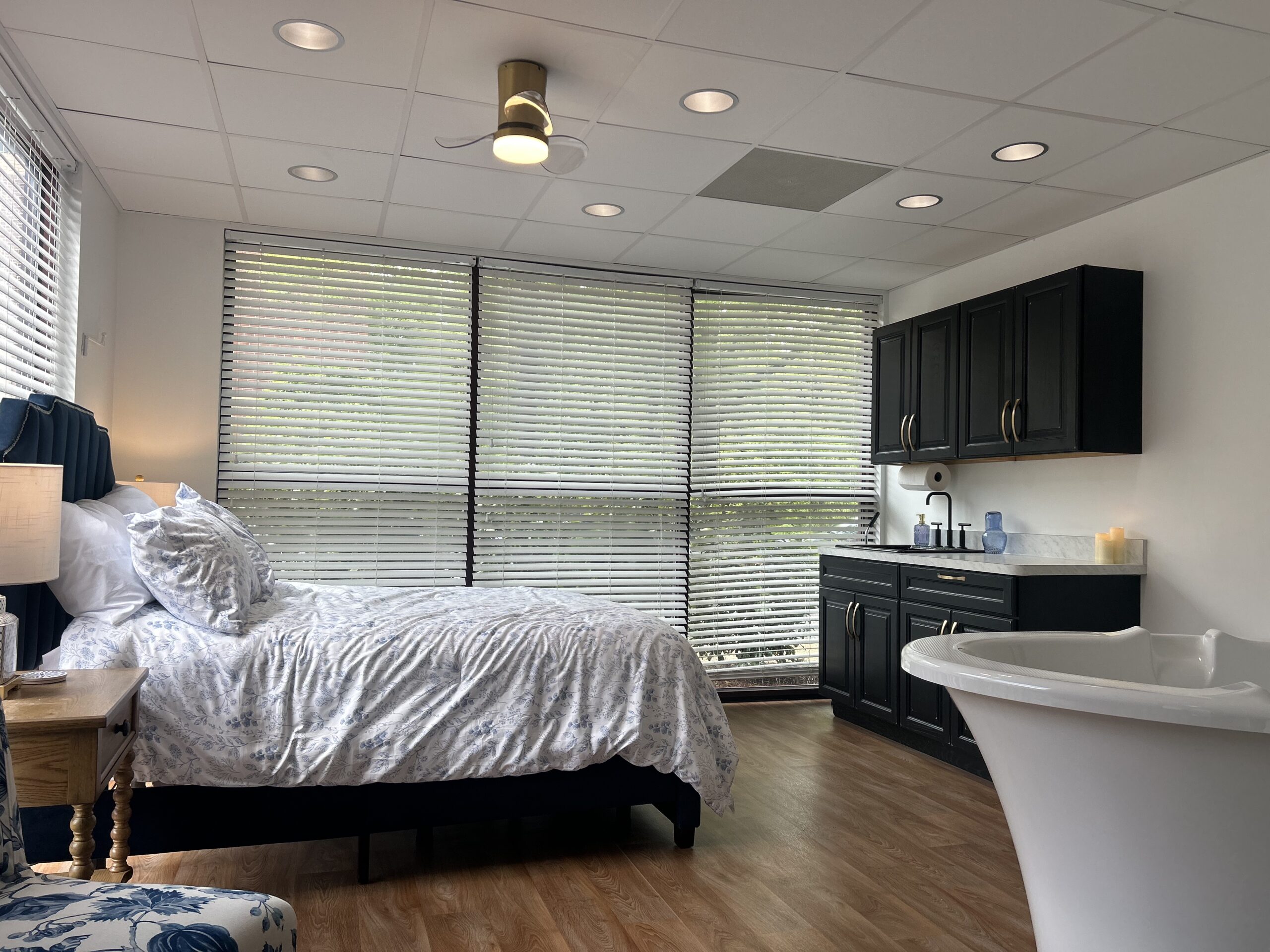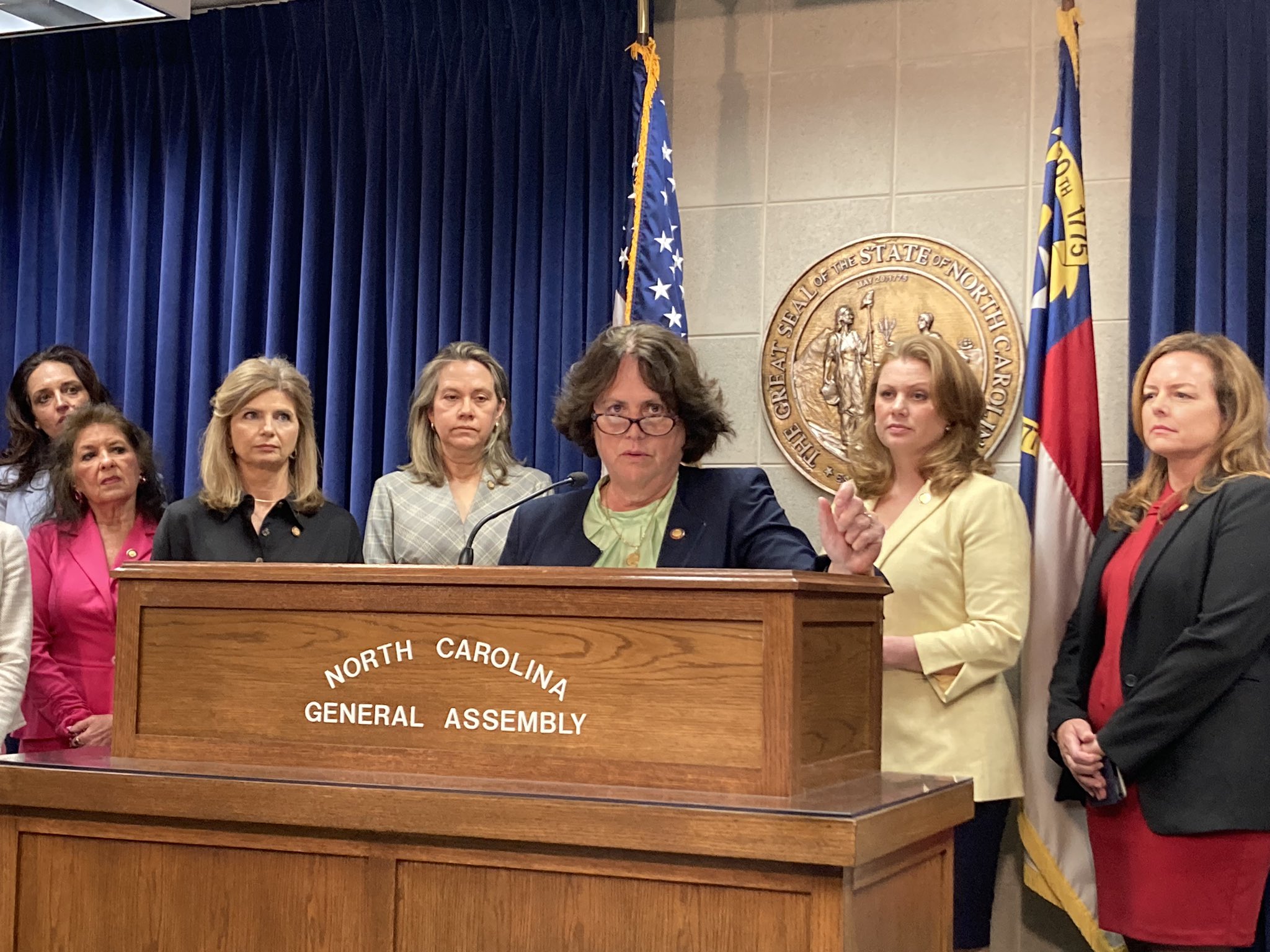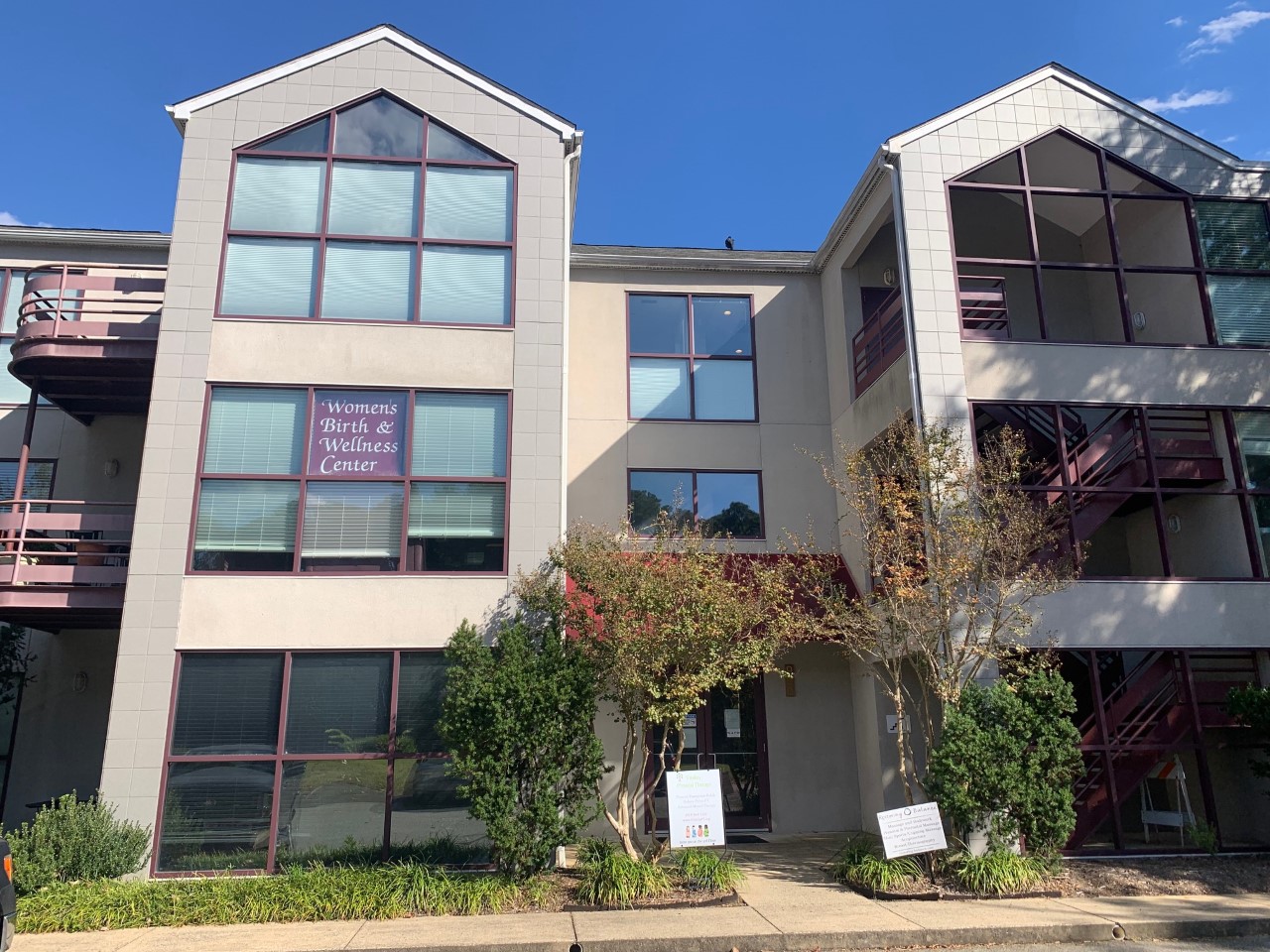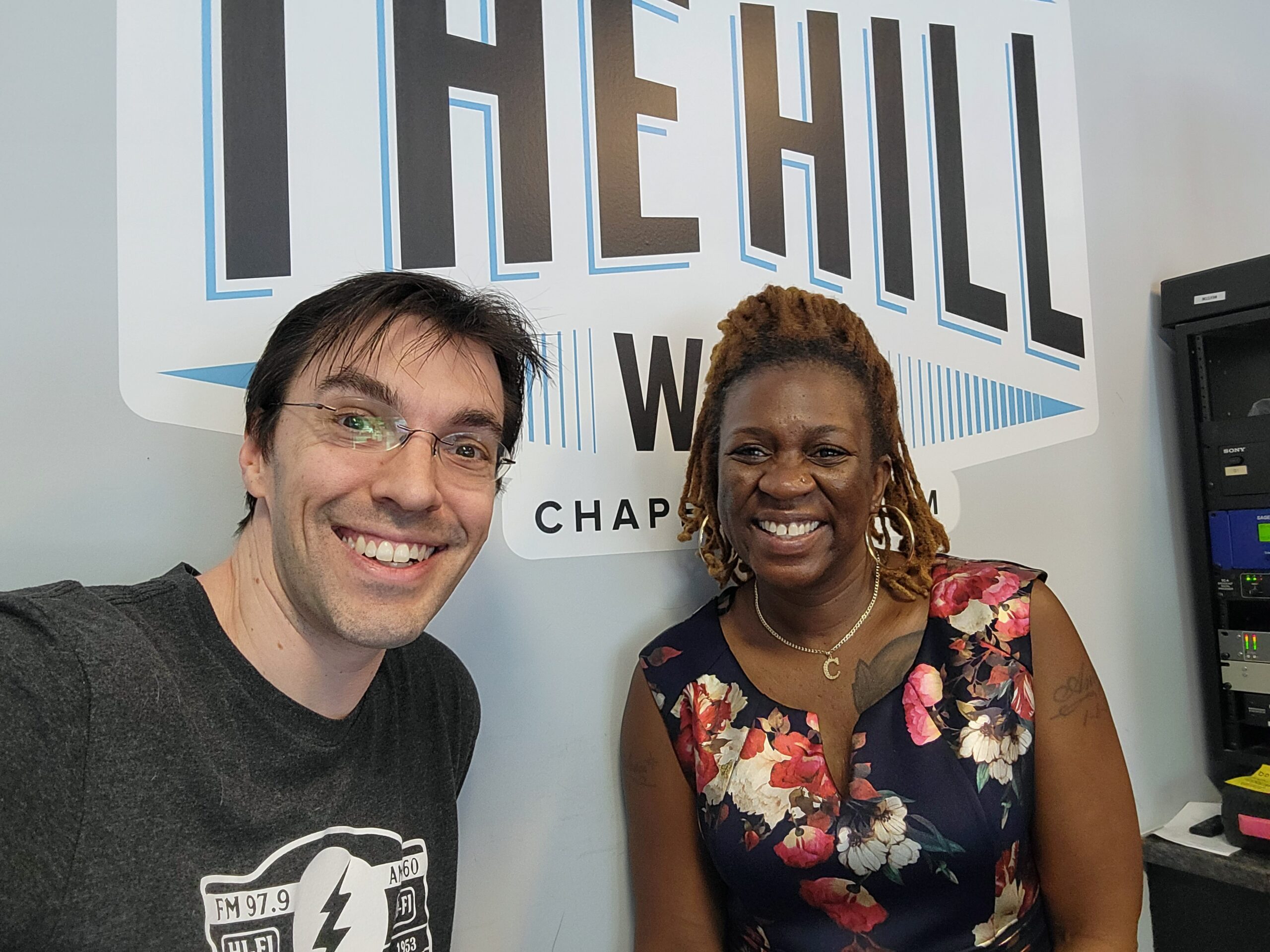As we continue to process the impact of the Supreme Court’s decision overturning Roe v. Wade, one concern that’s emerged is the possible negative effect on victims of domestic violence and intimate-partner violence. Advocates say domestic violence victims may be at even greater risk of abuse during pregnancy – and it’s much more difficult for victims to leave their abusers if they have children with them.
The Court’s decision also came on the heels of another high-profile news item: the much-publicized Johnny Depp/Amber Heard trial, which saw Heard’s claims of abuse widely derided (and Heard herself relentlessly mocked) in public discourse and on social media. Regardless of the specific details of that case, advocates warned that the treatment of Heard would have a chilling effect on domestic violence victims who are trying to take the already-difficult step of coming forward and telling their stories.
With that in mind, 97.9 The Hill’s Aaron Keck spoke with Christian Adams, a domestic-violence survivor herself who’s now the executive director of the Compass Center for Women and Families.
Listen to their conversation:
Christian Adams: When we’re talking about abortion access, and Roe v. Wade being overturned, it’s just not about not (having) the right to birth or not birth. It really is also creating these extreme barriers for (victims of) domestic violence and intimate partner violence. Once you have a child with an abuser, and you’re in that situation where you’re not only just trying to protect yourself or take care of yourself, it becomes dramatically harder for you to actually walk away from that abuser. And I know this as a survivor myself.
Aaron Keck: What have you heard in conversations, (either with) clients or staff members and volunteers?
Adams: Our staff, immediately, we were all impacted. You know, it decreases morale when you’re trying to do this work. And then you get – like this punch in the gut, because you know, you’ve seen the survivors, you’ve seen the victims that come in and many of them say, “well, you know, I’ve gotta go back.” There’s already barriers around housing. And if they can’t find housing and they leave (their abuser) when they’ve got two or three children, it’s a lot harder to crash on someone’s couch or live with a relative. And so a lot of them end up going back. And this impacts not only our immediate survivors and victims, but also the overall community. I think that’s the thing that we’re missing. Orange County will be greatly impacted by Roe v. Wade being overturned, and survivors and victims really being forced to stay in these situations longer if they’re being forced into these births.
Keck: That (ruling) came on the heels of the Johnny Depp/Amber Heard trial – which I know neither of us were really following, but I know the conversation afterwards was (about) the public dragging of Amber Heard’s character, and I know folks were saying (that) is going to add another obstacle for domestic violence survivors to come forward and share their stories, which is already a difficult thing for anyone to do.
Adams: And yeah, I didn’t really follow that case, but first off, shame on us as a country, for allowing this case to be so publicized. The heightened level of airtime that case got is the reason it will probably disproportionately impact domestic violence victims and survivors. It’s hard enough to come forward. We know that many of our survivors tell us that – you know, talking to (friends and) family members, they can’t do it, because of this stigma around domestic violence. And so now, for victims that might be sitting out there watching this case, they’re probably wondering, is this what’s going to happen if I come forward?
As a survivor, I would say to anyone: if you’re a survivor, if you’re a victim of domestic violence, please do not let this one case be the thing that keeps you from coming forward. We have advocates. If you’re in Orange County, we have advocates who go with you, who help you get the domestic violence protective order, who help you do the filing, who will be right there beside you. You will not be by yourself. Do not be ashamed to stand into these situations.
Keck: Tell us about the services that you provide.
Adams: At the Compass Center, we provide services for domestic and intimate partner violence for all folks. We have a 24-hour crisis hotline. We also have our education programs. Sexual health education is very much part of the work that we do. And then also we have our self-sufficiency or economic sufficiency programs. We provide career counseling, (helping) people to get into jobs, higher-paid jobs, to have that economic stability – and then also financial literacy, talking to them about budgets, about housing, how to get their credit scores increased. All of those things that are so impactful as folks are trying to move into the community and survive and thrive and take care of themselves and their families.
Keck: If people want to help you in any way, what can they do? Where can they go?
Adams: Go to our website and look for the donate button. Give what you can, no amount is too small. We need your support. And we always need volunteers, and we have a volunteer button as well on our website.
Visit the Compass Center website, CompassCtr.org.
Keck: Final thoughts, final message to folks?
Adams: To anyone who’s a (domestic violence) victim: we are here. Compass Center is here in Orange County. We want you to know you’re not alone, that you have folks that are in the trenches with you every day. And if you reach out, there will be someone here to support you. Don’t give up, hang in there. As someone that’s a survivor, I know this it’s hard, but we will never stop doing this work.
Chapelboro.com does not charge subscription fees, and you can directly support our efforts in local journalism here. Want more of what you see on Chapelboro? Let us bring free local news and community information to you by signing up for our biweekly newsletter.

